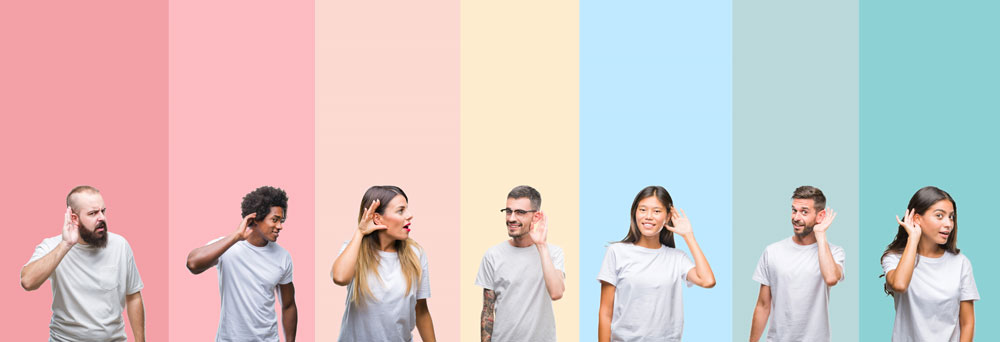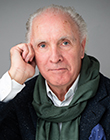2023.09.19
- 調査・研究
© 2020 SASAKAWA SPORTS FOUNDATION
© 2020 SASAKAWA SPORTS FOUNDATION
Mission&Visionの達成に向けさまざまな研究調査活動を行います。客観的な分析・研究に基づく実現性のある政策提言につなげています。
自治体・スポーツ組織・企業・教育機関等と連携し、スポーツ推進計画の策定やスポーツ振興、地域課題の解決につながる取り組みを共同で実践しています。
「スポーツ・フォー・オール」の理念を共有する国際機関や日本国外の組織との連携、国際会議での研究成果の発表などを行います。また、諸外国のスポーツ政策の比較、研究、情報収集に積極的に取り組んでいます。
日本のスポーツ政策についての論考、部活動やこどもの運動実施率などのスポーツ界の諸問題に関するコラム、スポーツ史に残る貴重な証言など、様々な読み物コンテンツを作成し、スポーツの果たすべき役割を考察しています。
2023.09.19
The language we speak influences the way we think – and the way people think about us. David Minton, founder of Leisure DB, offers his thoughts on how our sector must reinvent its language to better engage with consumers and government.
Does the language we speak shape the way we think? This is a question often debated by linguists. My own perception, informed by regular visits to Japan, is that it absolutely does.
Language in Japan is layered with status, politeness – indeed, the avoidance of all possibility of rudeness – superstition and duplication; four is rarely used by PTs, for example, because the pronunciation is the same as death. Gender nuances mean pronouns can seldom be translated from English to Japanese on a one-to-one basis. Navigating the language is difficult, yet the parallels between language, culture and population mindset are clear.
When thinking about language and its impact on each of us, I therefore believe it helps if your pool of reference is multi-lingual. Speak multiple languages and you’re more acutely aware of the cultural nuances reflected in each – the way each language is shaped by its society, and vice versa – and how languages continually evolve to keep up with social change.
You’re more appreciative of language creep: one language assimilating words from another, when those words just work better than anything it can currently offer.
You have a greater understanding of language etymology, and how this history shapes the way you express yourself in that language, and how that expression influences the way you think.
Put simply, you’re more likely to challenge your own language, and your use of it, questioning people’s go-to choice of words and exploring other options when expressing yourself.
These were my ponderings the other day as I considered the language we use in our sector. They led to an interesting thought. There are around 7,000 fitness sites across the UK, and around 7,000 languages spoken around the world. As a new take on town twinning, what if each club, centre and studio were to ‘adopt’ another language?
I’m not suggesting everyone in the facility become bilingual, but I do wonder if language twinning might help shine a spotlight on how language – its structure, direction of writing and reading, grammatical gender(s), sound and meaning – can define and influence the way we think about things, including our own health and personal mobility.
If so, could it also contribute to the debate on our use of language and vocabularies within the sector, and how we might nuance things differently moving forward?

At the 2023 Evolve event – organised by Leisure DB, hosted by Red Bull, compered by Nick Mennell from Pocket Rocket and supported by a collection of concerned partners and speakers – the takeaways included the need for a fresh language to appeal to a wider audience. The baton was taken up by Tara Dillon, CIMPSA CEO, who quickly committed to organising a set of roundtables on this subject.
At the event itself, trainer-instructor Keith Smith questioned why anyone would want to “work out” after a day of work, but this is just the tip of the iceberg in a sector that still talks about being beach body ready, losing calories fast, looking good naked, being stronger than your excuse, harder faster stronger. Where calls to action include the likes of ‘we are all bodybuilders, so build the house you want to live in’ and ‘if it doesn’t challenge you, it doesn’t change you’. Where honestly, much of what we say verges on fat shaming.
To quote Sacha Baron Cohen, whose fictional foreign characters interact with unsuspecting subjects: “Democracy is dependent on shared truths, and autocracy on shared lies.” Shared truths and lies, bias, isms and dogma are woven into the grammar, vocabulary, definitions and methodology of current fitness sector language. We need to change the way we speak to change the way we think – and the way others think about us.
Because the main reason for considering language is, of course, how others perceive our sector.
I’d also like to quote George Orwell, who said you can only think clearly once you ditch meaningless words, and Steve Jobs, who said that focus means saying ‘no’. Our sector must say ‘no’ to words and phrases that have limited appeal. Fitness is not some wish-fulfilment centre. These inspirational quotes in marketing and on gym walls – taglines, slogans, mission statements – do nothing for me or the majority of the population.
We also need to be conscious of how people absorb even well-chosen language. Ronald B Adler, the American academic and expert in the science of communication, claims adults spend around 70 per cent of their time engaged in ‘communication’, of which 30 per cent is speaking, 25 per cent reading and 45 per cent listening.
But the bad news is, we’re losing our listening skills; many believe the digital age is having a deleterious effect on the way we absorb, remember and recall what we have heard. Take as a simple example a gym’s induction process. By the time I receive the sixth instruction, I have difficulty remembering the first. How many of us can soak up every word and replay at will?
All of this must be factored in to our deliberations around language from a consumer-facing perspective.
Thus far, I wonder: have we been sweetly oblivious to, or perhaps unperturbed by, our inability to communicate with either the masses of the population or the right levels of government?
It might feel like an almost impossible challenge: from a political perspective, our starting point is poor. Our sector suffers from a crisis of identity, a lack of focus, no aggregated data around a whole slew of metrics deemed vital by government, poor pathways and too many under-funded representing organisations. We have no political champion, no political influence and limited common knowledge.
Cue just £195m of funding being offered in March 2020 to help the sport and physical activity sector, and just £60m for swimming pools, with applications for that fund only opening in June 2023. Cue no direct funding at all for the fitness sector during the pandemic. Cue DCMS having no priority outcomes for our sector.
It comes down, I suggest, to having no common language, no focus, no-one ‘in the room’, no ability to provide shared, granular spending, participation or usage data.
Meanwhile, as Arnold Schwarzenegger once said: “If you find the right way of communicating, you can unlock something that is almost impossible to do.”
Let’s take as an example the Culture Recovery Fund, established in March 2020, which received £1.57bn on 5 July 2020. In April 2023, a robust evaluation on the impact of supporting nearly 220,000 jobs and 5,000 organisations was published by independent consultants Ecorys, which provided clear evidence the fund had worked.
I suggest that this fund had a common language, shared data, focus and people in the right place at the right time to get things done.
And yet we know the opportunities are there, with health higher on the agenda than ever before. The World Economic Forum has also talked about the pandemic being an “opportunity to reflect, reimagine and reset our world”.
Meanwhile, in a report published earlier this year – Healthy Britain: A new approach to health and wellbeing policy – Labour MP Kim Leadbeater called for a major transformation in the way government protects the health and wellbeing of all citizens. One of the proposals: to put physical literacy and wellbeing at the heart of a ‘curriculum for life’.
How we communicate will be part of this solution.
On the recommendation of Andy King, chair of GMActive, I have been reading Stephen Covey, who suggests we should “seek first to understand before being understood”.
If we genuinely want to be part of the way this country improves population health, we need to be humble and resist trying to oversell our wares. We need to acknowledge that we are part of a system – that we have a role to play, but that we are not the panacea to a complex situation.
We need to respect others’ opinions and listen to what people need, rather than focusing on what we think we want to sell. We need to genuinely want to learn and be willing to play a part in priorities we do not choose. We need to be ‘in the room’, with a mindset that’s about contribution, not what we can take away.
In Greater Manchester, this approach has already seen the leisure providers co-design and co-create the NHS award-winning Prehab4Cancer service, which will support 10,000 patients in their journeys against cancer over the next two years.
In an age when we’re losing our capacity to listen, hear and absorb, I have a suggestion. Over the coming year, let’s try to notice how – individually and together – we can come to truly listen to those around us. Listen afresh, listen attentively, make sure our time spent listening is time well spent. Once we have done that, we will be in a better position to forge the appropriate language.
レポート執筆者

David Minton
Founder, LeisureDB
LeisureDB for the most accurate and insightful data and reporting on the fitness industry.
https://www.leisuredb.com/
Special Advisor, Sasakawa Sports Foundation